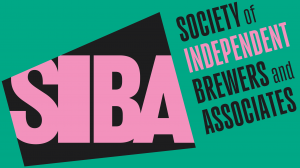There’s a beer revolution going on in Britain – new Report reveals how craft breweries producing ‘real’ ale are at the heart of the action
Just as Cask Ale Week (Thursday 25th September to Sunday 5th October) kicks off, a new report with exciting news for beer lovers has been published.
There are now over 18,000 different beers available each year in Britain, the majority of which are cask conditioned or ‘real’ ale.
“There’s been an exponential increase in the number of ales on offer – and the quality has never been better,” says Pete Brown, author of the Cask Report. “A beer revolution is sweeping across the country. Local and regional craft brewers may be guiding this revolution, but the support received from ordinary pub-goers is what makes the movement so powerful.
“Men and women from all walks of life are trying cask ale for the first time – and relishing the experience. Urban trend-setters, rural foodies, and a whole new generation of people who prefer flavoursome, naturally-produced food and drink are turning in growing numbers to the hand-pulled pint.”
He says that, having spent years losing out to global brands with huge marketing budgets, cask ale began to come into its own with the emergence of the artisan food and craft beer movements. Since the millennium the number of breweries in the UK has trebled. There are now over 1,400 breweries, with three new openings a week. The vast majority of these are focusing on cask ale, and all are adding variety and choice to the market.
As a fresh product containing live yeast, real ale ferments naturally, finishing its maturing process in the cask in a cool temperature-controlled cellar. This is why it is found in pubs but not supermarkets. “Its uniqueness to the pub has certainly played a part in keeping pubs open,” says Pete, “and the better the publican looks after and promotes the cask offering, the more likely the pub is to succeed.”
As well as offering information and advice to the pub trade, the Report looks at attitudes of drinkers and licensees – and finds them to be at odds on some issues. For example, whereas licensees are keen to change their guest ales at great frequency, drinkers would like to see them available for at least a month.
“Of more concern though is the fact that while the profile of real ale drinkers is changing, publicans’ perceptions aren’t always keeping pace,” says Brown.
43% of publicans agreed with the statement ‘Most cask ale drinkers are middle aged men with beards and sandals’ and 41% agreed with the statement ‘Women don’t like cask ale’, while only a fraction of that number of drinkers agreed.
“These are outdated stereotypes that need to be consigned to the proverbial slop bucket,” says Brown, “and as the beer revolution and the real savouring of taste continues, no doubt they will be.”
Pub activities for Cask Ale Week, which runs from 25th September to 5th October, range from tutored beer tastings and free pint offers to beer quizzes and beer festivals. Many breweries have produced special brews to mark the Week, and others are opening their doors to the public for tours and tastings.
http://www.caskaleweek.co.uk/ Twitter: @caskaleweek Facebook: National Cask Ale Week










